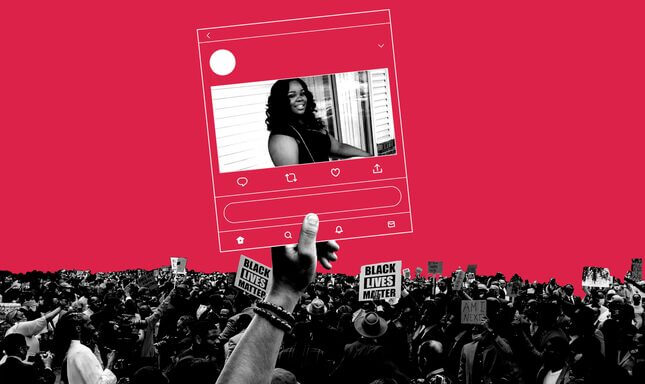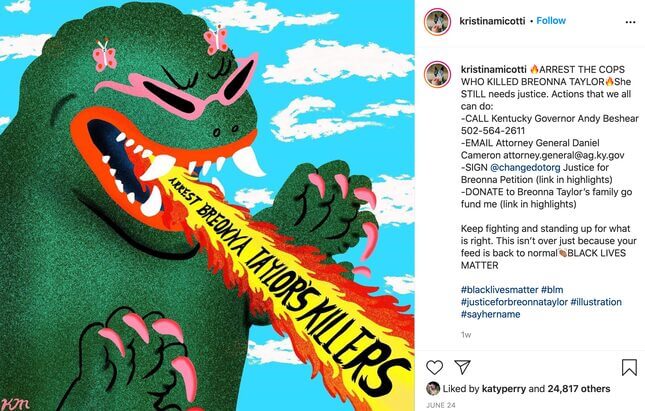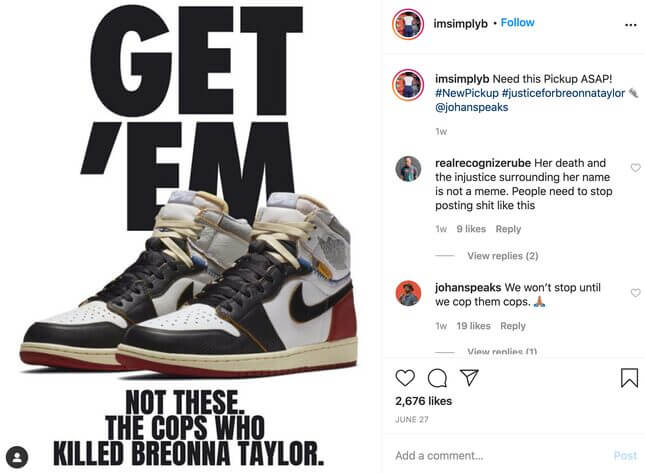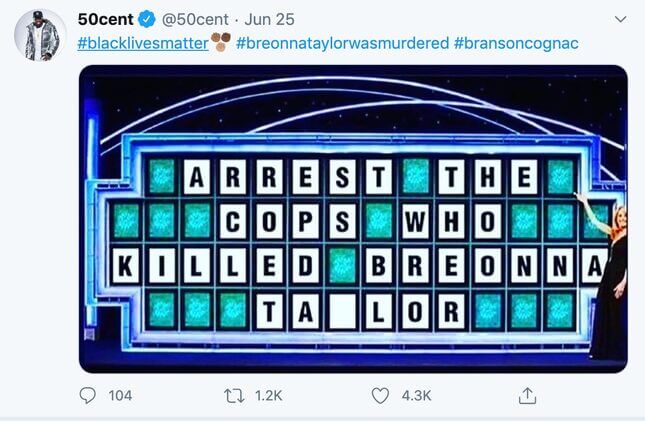Memes Are Robbing Breonna Taylor of Her Story
Latest
Graphic: Graphic: Jezebel, Photos: Getty, justiceforbreonna.org
If you believe what you read on the internet, it’s a beautiful day to arrest the cops who killed Breonna Taylor.
The turn of phrase has become near-ubiquitous on social media in recent weeks as attention for her case dwindles once again. Early participants in the growing meme earnestly sought to draw attention to Taylor, a 26-year-old EMT from Louisville, Kentucky, who was killed in her home by three police officers when they executed a no-knock warrant on the apartment she shared with her boyfriend Kenneth Walker. Her death drew limited national attention while the officers who killed her remained employed and uncharged.
But what began as sincere tweets and photos, urging people to remember to show up for Taylor’s case, quickly morphed into a distasteful meme genre of its own. Absent any specific call to actions, “arrest the cops who killed Breonna Taylor” became a clarion call, divorced from Taylor’s life and image—the newest virtue signal of choice, one that defies the current conversation around the abolition of police and prisons.
It became a clarion call, divorced from Taylor’s life and image.
Pithy fake-out tweets about everyday errands, album announcements, affirmations, and baking became avenues for users to signal that they were Good People™ and had not forgotten about Taylor’s case. Over on Instagram, they accompanied selfies and implied nudes. Once the momentum passed, people found creative ways to go back to doing what they’d always been doing. Focus shifted from Breonna herself and onto the same sort of clever one-upmanship typically rewarded by social media.

This violation added to the injustice of Breonna Taylor’s death, which did not appear to provoke the same visceral reaction that was felt for Ahmaud Arbery and George Floyd. There were far fewer people who saw a Black woman’s death as a tragedy in need of immediate mobilization—a fact that incensed and injured the Black women left behind to see her name and story be erased in real-time.
I was one of those Black women. And as the protests in support of George Floyd received wall-to-wall media coverage, I created the #BirthdayForBreonna social media campaign to try to bring her story back into the media cycle on June 5, 2020—what would have been her 27th birthday. I wanted to create space not just to remember Taylor, but for all the Black women who were once again swallowing the bitterness of seeing the way we are continually erased from the collective narrative around police brutality in service of elevating the stories of Black men. We needed to publicly mourn her because we were the only ones who would.
To be blunt, it worked. Just as I had asked, people flooded social media with remembrances for Breonna Taylor, followed the action steps I laid out, and sent birthday cards to the Louisville Attorney General demanding action in her case. It was a show of support much larger than I ever could have hoped for, and it was incredibly moving to see total strangers take it upon themselves to go above and beyond in her name. One woman flew from Florida to Kentucky to attend a rally. Another baked Breonna a cake and sold slices, with proceeds benefiting the Louisville bail fund. Her family’s GoFundMe—initially with a modest ask of $500,000—is still going at over $6,000,000. Celebrities ranging from Charlize Theron to Busy Philipps to Neko Case encouraged people to participate and donate. Alicia Keys sang her happy birthday. Gugu Mbatha-Raw painted her portrait.
A month later, little has changed. “No-knock” warrants are now banned in Louisville, but no criminal charges have been filed against the officers. While on the ground protests and demonstrations have continued, Taylor’s name has once again fallen out of the news. Unfortunately, her memory has been continuously invoked in the proliferation of a grotesque meme—a perversion of the goals of those who want to see her get justice.
But the definition of what that justice should look like has shifted significantly in a manner of weeks. Activists have succeeded in making police abolition a mainstream political consideration, meaning that calling for the arrest of the officers in Taylor’s case is now a message that is out of step with the current demands for police and prison abolition. As a result, people invested in Taylor’s case are divided into two factions: those who want to pursue traditional means of justice and those who want to use her case as an example of how to enact alternative, more progressive means of redress that can be modeled for the future.

Taylor’s is the only case of the three mentioned above that has not seen any arrests. One of the officers involved, Brett Hankison, was fired from the police force, but only after unrelated allegations of repeated sexual assault were made against him. The other two officers—Jon Mattingly and Myles Cosgrove—have been placed on administrative leave but remain employed.
Given these facts and the infuriatingly slow pace of the case, it makes sense that supporters would try to bring it back into focus in an effort to earn the same consequences for all of her killers. But as Miranda Robinson, a Black project manager from Boston told me in a brief interview, the facile simplicity of these deft memetic turns “doesn’t call on people to do any deep thinking about reconciling their calls to abolish the police with demanding we ‘arrest’ these cops.”
I reached out to some women after spotting their disaffection for the growing trend and many shared similar sentiments. Arika Thames, a Black woman from Washington D.C., said that “sharing these memes does a disservice to the abolitionist movement because it seeks to legitimize and uphold the prison system that we are currently trying to tear down.”
“It’s literally lip service,” Katherine Laubscher, a mixed-race communications strategist from San Francisco, told me. And it’s easy to see why she’d think so. Reposting a meme falls within routine internet parlance. There’s nothing very novel about it. “It’s the easiest way for them to nod to the movement and seem woke without interrupting their scheduled programming. The vast majority of people will see a photo and double-tap and keep it moving.”
Robinson agreed. “People are desperate to go back to posting their selfies and memes but still want to get their cookies for caring about Black lives, with a cherry on top for their cleverness. It feels dismissive. Like she’s an idea rather than a person. You could slot any name, or frankly any cause, into their little captions and it wouldn’t change a thing because it’s totally divorced from lifting her up, mourning her, or preventing more like her,” she said.
The acceptance of this kind of humor, Robinson believes, is a sting of disrespect for Black women. “I think there would be tone policing about this lack of solemnity were it regarding anyone other than a Black woman,” she said.
Even in death, Taylor has not been allowed to stay at the center of her own story.
For many, the proliferation of these memes feels like yet another way in which Black women are erased. Even in death, Taylor has not been allowed to stay at the center of her own story. Coverage of and reverence for Black people killed by police divide cleanly along gender lines, with Black women squarely on the wrong side. Rapper Jay-Z released an open letter demanding justice for George Floyd, and within the week, the officers involved in his case were charged. Beyoncé released a similar letter in support of Breonna Taylor and was met with indignation from Louisville’s city administration. It’s hard to conclude anything other than that Black women have been deemed disposable. Black women ask for consideration and get nothing but dismissal in return.
Christine Boyer, a white writer from Boston, told me the memes flatten the potential of Taylor’s life. “When she’s diluted down to a glib, cutesy meme it’s a dishonor to her. She was very much a real person, with real thoughts and dreams and dislikes. She leaves behind a world of hurting family, friends, and acquaintances.”
Thames felt the memes also disregarded Taylor’s family. “Imagine being her family member and everyone on the internet is trying to make the best meme about your loved one’s death,” she said. It’s additional cruelty that Black women now know what is on the table should they meet their own demise.
I believe and support the abolitionist arguments in the abstract: It is clearly true that we cannot look to the same violent system that took Breonna’s life to then somehow validate it. The carceral system destroys lives and elides justice; defunding police and reinvesting into communities is a common-sense way to eliminate the need for policing in the first place. And given how often police officers escape conviction in the rare occasions in which they are arrested and charged, asking for justice from a system that routinely exonerates them for killing Black people feels like merely delaying heartbreak. As Kelsey Dickson, a Black sales administrator, told me, “Police policing other police doesn’t liberate anyone. There need to be firings with no new cops hired to replace them.” The goal, therefore, is not to punish, but to prevent further harm.
While that demand makes sense with the goal of dismantling police and prisons in mind, it still feels like an injustice that all these men should lose is their jobs. People lose their jobs every day, and it is hard to reconcile that in exchange for snuffing out a promising young life, the only thing of value these men might lose is their pensions. And then there’s the unequal treatment. Why should Breonna Taylor be the only one whose family doesn’t get the catharsis of an arrest?

It’s far too easy for Black women to be left out when synthesizing a movement into specific goals. As Dr. Brittney Cooper noted in a conversation with For Harriet’s Kimberly N. Foster, in a world without police, Black women are particularly vulnerable. It’s a reasonable concern given that more than 40 percent of Black women will experience domestic abuse in their lifetime. When Black women are in critical danger, there needs to be someone who will intervene. The problem, of course, is that with police, Black women are still vulnerable. So if we’re being harmed either way, why not abolish the system we know for sure causes additional institutional harm and build something new in its wake?
A simple quest to ensure Breonna Taylor was not forgotten as the country entered what felt like an unprecedented moment of racial reckoning became a complicated mass of issues. What we built out of the ashes of the carceral system might be beyond my personal imagination, but these memes, well-intentioned as they may be, merely reinforce the very systems that led to Breonna’s death. And that’s a problem we can fix today.
Update 7/8/20: This post has been updated to include Katherine Laubscher’s full name.